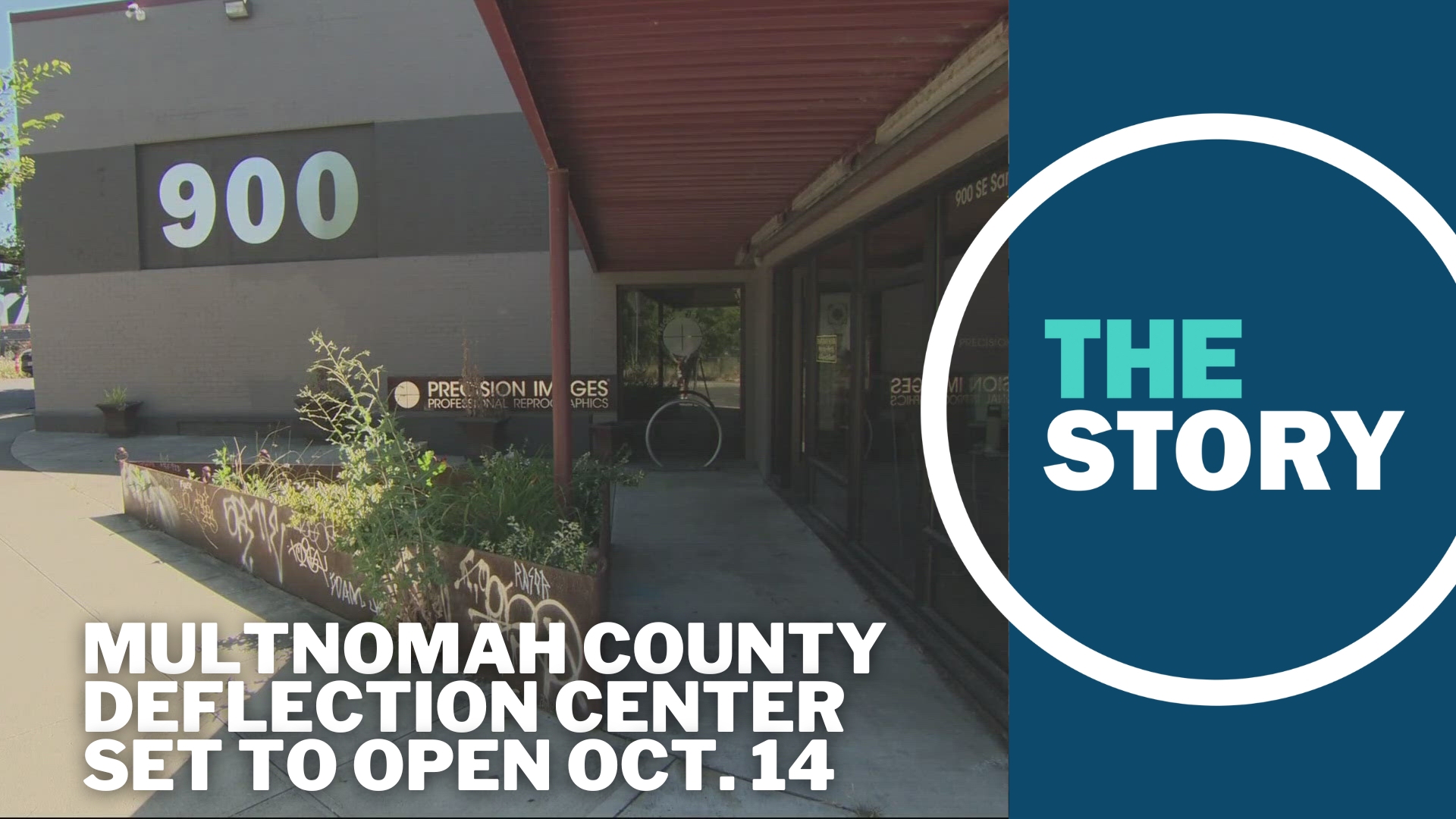PORTLAND, Ore. — Multnomah County's drug deflection center will officially open Oct. 14, the county announced Monday. The facility was initially planned to open Sept. 1, coinciding with the recriminalization of hard drugs in Oregon and the start of the county's deflection program, but staffing and renovation challenges prevented it from hitting that target.
County officials previously said they were eyeing a new opening date range of mid-to-late October. In a news release Monday afternoon, the county said that Tuerk House, the Baltimore-based nonprofit contracted to run the center, has reached adequate staff levels.
"We are looking forward to Monday’s opening of the Coordinated Care Pathway Center," Tuerk House CEO Bernard Gyebi-Foster said in a statement. "We are confident in the team and facility we have in place, and we are eager to welcome the people of Multnomah County and support their recovery journeys."
The facility at 980 Southeast Pine Street will officially be called the Coordinated Care Pathway Center. It won't initially be open 24-7, operating instead on a more limited schedule of 7 a.m. to 11 p.m. on weekdays and 7 a.m. to 3 p.m. on weekends, although security will be on-site and patrol the perimeter 24-7.
"The deflection center is going to be operating partly based on when we're seeing the most demand for deflection services," said county spokesperson Ryan Yambra.
Deflection's origins
The deflection program was established under Oregon House Bill 4002, which partially rolled back Measure 110 and created a new misdemeanor charge for simple possession of hard drugs, while also making millions of dollars in new funding available for counties to boost their treatment programs.
The county-level deflection program gives people caught with hard drugs the option to "deflect" into treatment instead of being charged and sent into the justice system, provided they have no active warrants and aren't being detained for any other crimes.
Multnomah County describes the Coordinated Care Pathway Center as a physical hub for its deflection program, giving law enforcement a place to immediately bring people who are caught with drugs and agree to deflection. The county plans to expand the facility to 24-hour operation by April, according to the news release, and will also add up to 16 sobering beds.
"It's going to make a huge difference for law enforcement, because law enforcement and our partners at the city of Portland have been clear with us, they need a space to drop off people who are eligible for deflection," Yambra said.
Designing deflection and sobering spaces
Despite the plan to add sobering beds, the deflection center is not going to become a full-fledged sobering center. The county has a separate project currently underway to open a permanent sobering facility with 30-50 beds, intended to replace an earlier facility run by the nonprofit Central City Concern.
The prior facility had operated for more than 30 years and was the only sobering center in the city when the nonprofit shut it down in 2019, saying it wasn't equipped to respond to the fentanyl crisis.
The Board of County Commissioners voted Sept. 19 to authorize an expedited procurement process for the space, and the county plans to issue a request for proposals later this month and select a contractor early next year, according to Monday's news release.
Scott Edwards Architecture is involved in both projects. The firm helped the county find the deflection building, design the renovations and work with the construction company to get the work done as fast as possible, and it's also working on the search for a sobering center site.
"We've been looking from anything from warehouse buildings that have limited walls on the interior, and one that was more of an office building that we were going to renovate," said Margaret Wilson with Scott Edwards Architecture.
Deflection results so far
Multnomah County's deflection has operated on a mobile basis during the initial six weeks, with outreach workers deployed to meet up with police in the field and offer to connect offenders with treatment. The street outreach efforts will continue after the deflection center opens, particularly in east county areas that are farther from the facility.
The county announced on Friday that 71 people have been referred into the program since it launched, and those cases have led to 136 referrals from outreach workers to services including detox, mental health and housing.
The county is also beginning to hear back about people who were deflected during the program's first couple weeks, to see how many of them completed the terms outlined in their deflection plan. "A handful of people" have completed deflection, Yambra said, but others failed to follow up or their status is still listed as pending.
Washington County also released an update on its own deflection program Monday. A total of 91 people were charged with the new drug misdemeanor in the first 30 days after it took effect Sept. 1, 27 of whom were eligible for deflection and 17 of whom chose to participate, according to a news release from the county.
Most of the people who weren't eligible were excluded because they had existing criminal charges or were on formal supervision, the county said. Still, county and law enforcement officials described the initial results as a succcess.
"One month in, it's going incredibly well," Hillsboro Police Officer James Weed said in a statement. "We have had multiple success stories, particularly of some more vulnerable people in our city who have been historically very resistant to going to treatment now actively seeking and getting treatment."

